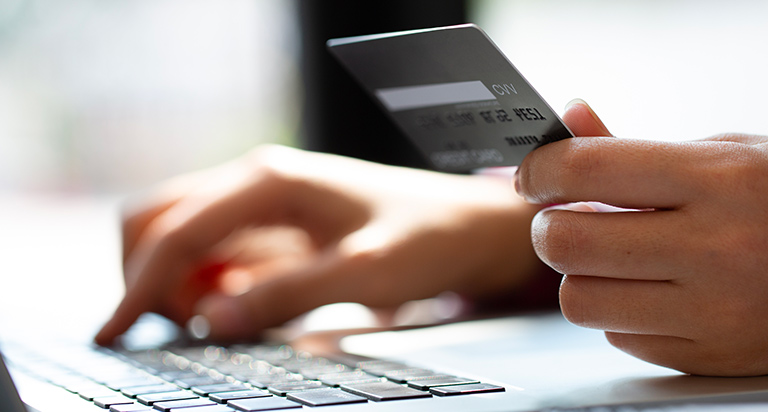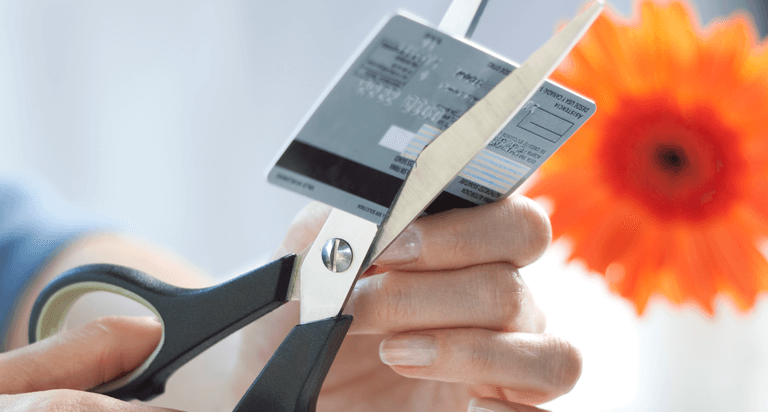Why People Have Credit Card Debt & How to Avoid It


Highlights:
- Borrowers need to understand how their credit cards work in order to avoid common mistakes that can lead to debt.
- Only making your minimum credit card payments and spending more than you earn are two common causes of credit card debt.
- Credit card holders can be proactive about avoiding debt by setting a budget and tracking their spending.
If you're feeling stressed about credit card debt, you're not alone. Credit card debt is a common problem that can empty your wallet, drag down your credit scores and even strain your mental health.
Wondering what to do about your credit card debt? Here are a few things to know about how people get into debt — plus steps you can take to avoid credit card debt.
The top reasons people get into credit card debt
Credit cards allow borrowers to divide large purchases into smaller, more manageable payments. When used responsibly, credit cards can be excellent tools to help establish or build your credit history. They can also help borrowers reach financial goals and make large purchases that they would be unable to meet with cash alone.
However, credit cards are not without their risks. So, it's important for borrowers to understand how credit cards work in order to avoid the following common mistakes that can lead to debt:
- Not paying attention to credit card interest rates. A credit card typically comes with a set interest rate called an annual percentage rate (APR). Your APR represents the total annual cost of borrowing money, expressed as a percentage. Your credit card provider charges this interest on your outstanding balance, or the amount that you've charged to your card but not yet paid back.
Your credit card's APR can be steep, typically ranging between 15% and 20% or higher. For the lender, this extra revenue helps offset the financial risk of offering credit. But for the cardholder, interest charges can quickly lead to a significant increase in any outstanding balance. Borrowers can avoid interest charges by paying their credit card statement balance in full each month.
- Making only the minimum credit card payment. A minimum payment refers to the smallest amount that you're required to pay toward your credit card's account balance each month. However, cardholders often overlook the fact that paying only the minimum costs more in the long run.
Credit card interest is usually compounded daily. This means that any interest you owe is added back to your existing balance and becomes part of the principal. Essentially, you're charged interest on your interest. As a result, your credit card balance can continue to grow, even if you don't make additional purchases.
Only paying the minimum each month means you are carrying the debt from month to month, and your debt increases even further as you accumulate interest charges. It will take you longer — and cost more money — to pay down what you owe.
- Having too many credit cards. Credit cards come with a variety of reward options, such as cashback or travel points on certain purchases. Cardholders may open multiple credit cards to take advantage of different perks.
Provided you use each one responsibly, owning multiple credit cards isn't always a bad thing, but it may increase the risk of spending more than you can reasonably pay back. What's more, juggling multiple cards — each with a different interest rate, minimum payment and due date — can make it more difficult to keep track of what you owe.
- Spending more than you make. A credit card represents access to real purchasing power, but without tangible funds in hand, it's easy for cardholders to spend beyond their means. Overspending is one of the fastest ways to build a debt load that doesn't match your income. Consider your purchases carefully and do your best to avoid impulse spending.
How to avoid credit card debt
Whether you're a seasoned cardholder or a credit card newbie, it's important to be proactive about safeguarding your finances. Here are some steps you can take to avoid credit card debt altogether:
- Pay as much as you can toward your debt. When it comes to avoiding credit card debt, your top priority is generally to pay off as much of your balance as possible each month. While it would be ideal to pay off your statement balance in full to avoid interest entirely, this might not always be possible. Instead, aim to cut down what you'll owe in interest by making the largest payment that your budget allows.
- Track your spending. Prepare a budget that includes all of your earnings and expenses, use it to set limits on your credit card spending and keep a careful record of how you use your credit card. Prioritize essential purchases (such as groceries and utility bills) and try to avoid impulse spending. Identify non-essential spending that can be cut down, such as eating out and streaming services. Monitor your credit card use and watch for patterns that may lead to debt.
- Save for emergencies. Sometimes emergency expenses pop up that can make it difficult to stick to your credit card budget. To avoid charging emergency expenses, it's a good idea to start a rainy day fund to cover at least three to six months of expenses. If an unexpected cost arises, you'll be able to dip into your savings without having to rack up credit card debt.
- Keep an eye on your credit scores. Monitoring your credit reports and credit scores is an important part of managing your debt and your overall financial health. You can enroll in Equifax Core Credit™ for a free monthly Equifax® credit report and a free monthly VantageScore® 3.0 credit score, based on Equifax data. A VantageScore is one of many types of credit scores.
Get your free credit score today!
We get it, credit scores are important. A monthly free credit score & Equifax credit report are available with Equifax Core CreditTM. No credit card required.



